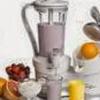

| Visitors Now: | |
| Total Visits: | |
| Total Stories: |
Colitis Preventions – Phytochemicals to prevent Colitis
Home of Kyle J. Norton for The Better of Living & Living Health Colitis is defined as a condition of inflammation of the large intestine, including the colon, caecum and rectum.
I. Types of Colitis
According to the study by Catholic University of the Sacred Heart, types of colitis include
microscopic colitis, ischemic colitis, segmental colitis associated with diverticula, radiation colitis, diversion colitis, eosinophilic colitis and Behcet’s colitis(a).
VII. Preventions
C. Phytochemicals to prevent colitis
1. Anthocyanins (Green tea)
Sunrouge, an anthocyanin-rich tea, has similar levels of catechins as “Yabukita,” the most popular green tea cultivar consumed in Japan. In the study to determine the inhibitory effects of Sunrouge on colitis in dextran sodium sulfate (DSS)-treated and untreated control mice, conducted by Graduate School of Agriculture, Kyoto University, found that Sunrouge improved these DSS-induced symptoms, at least in part, whereas Yabukita showed either no effect or adverse effects in regard to some those parameters. It is suggested that the differences between Yabukita and Sunrouge on DSS-induced colitis might be due to the high levels of anthocyanins found in Sunrouge tea(62).
2. Epigallocatechin-3-gallate (Green tea)
According to the study by Münster University Hospital, Albert-Schweitzer-Campus 1, the concept of anti-inflammatory properties of EGCG being generally beneficial in the DSS-model of colitis, an effect that may be mediated by its strong antioxidative potential(63).
3. Green tea extract
Inflammatory bowel disease (IBD) is characterised by oxidative and nitrosative stress, leukocyte infiltration, and up-regulation of intercellular adhesion molecule 1 (ICAM-1) expression in the colon. According to the study to examine the effects of green tea extract in rats subjected to experimental colitis induced by intracolonic instillation of dinitrobenzene sulphonic acid (DNBS), found that treatment with green tea extract significantly attenuated diarrhoea and loss of body weight. This was associated with a remarkable amelioration of the disruption of the colonic architecture, significant reduction of colonic myeloperoxidase (MPO) and tumor necrosis factor-alpha (TNF-alpha) production. Green tea extract also reduced the appearance of nitrotyrosine immunoreactivity in the colon and reduced the up-regulation of ICAM-1(64).
4. Procyanidins (Grape seed)
Grape seed extract (GSE) constitutes a rich source of procyanidins. GSE has been demonstrated to exert encouraging anti-inflammatory and anti-ulcer properties in experimental settings. In the study to determine the effects of GSE in a rat model of dextran sulphate sodium (DSS) for ulcerative colitis, showed that GSE decreased the severity of selected markers of DSS-induced colitis in the distal ileum and proximal colon, suggesting the potential as an adjuvant therapy for the treatment of ulcerative colitis(65).
5. Curcumin (Turmuric)
Curcumin is a widely used spice with anti-inflammatory and anticancer properties. It has been reported to have beneficial effects in experimental colitis. According to the study by The Western Hospital, First Affiliated Hospital of Guangxi Medical University, curcumin shows significant therapeutic effects on 2,4,6-trinitrobenzene sulfonic acid-induced colitis that are comparable to sulfasalazine. The anti-inflammatory actions of curcumin on colitis may involve inhibition of the TLR4/NF-κB signaling pathway and of IL-27 expression(66). Other study also indicatred that curcumin may be a safe and effective therapy for maintenance of remission in quiescent UC when given as adjunctive therapy along with mesalamine or sulfasalazine(67).
6. Resveratrol (Grape skin and seed)
According to the study by Cairo University, the anti-ulcerative effect of resveratrol in TNBS-induced experimental colitis via reduction of neutrophil infiltration, inhibition of adhesive molecules, and restoration of the nitric oxide level, as well as the redox status(68). Other study found that resveratrol effectively attenuated overall clinical scores as well as various pathological markers of colitis in IL-10(-/-) mice by down regulating Th1 responses. Resveratrol lessened the colitis-associated decrease in body weight and increased levels of serum amyloid A (SAA), CXCL10 and colon TNF-α, IL-6, RANTES, IL-12 and IL-1β concentrations(69).
7. Etc.
Chinese Secrets to Fatty Liver and Obesity Reversal
A groundbreaking e book about why almost
nobody in China suffers from fatty liver or obesity
Back to http://diseases-researches.blogspot.ca/p/cerebral-aneurysm_28.html
Back to Diseases http://medicaladvisorjournals.blogspot.ca/p/hormones.html
Sources
(a) http://www.ncbi.nlm.nih.gov/pubmed/23208963
(62) http://www.ncbi.nlm.nih.gov/pubmed/22422705
(63) http://www.ncbi.nlm.nih.gov/pubmed/22325177
(64) http://www.ncbi.nlm.nih.gov/pubmed/16087483
(65) http://www.ncbi.nlm.nih.gov/pubmed/23143736
(66) http://www.ncbi.nlm.nih.gov/pubmed/23250811
(67) http://www.ncbi.nlm.nih.gov/pubmed/23076948
http://medicaladvisorjournals.blogspot.com
2013-02-04 19:18:11
Source: http://medicaladvisorjournals.blogspot.com/2013/02/colitis-preventions-phytochemicals-to.html
Source:



